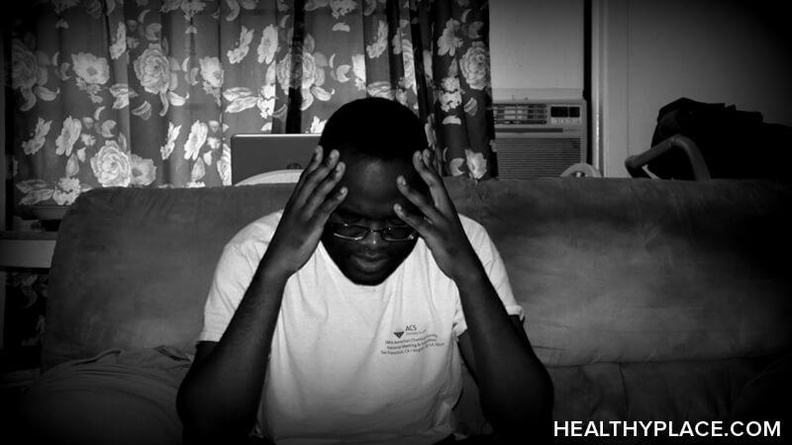Gender, Race, and Mental Illness

There are about as many men with bipolar disorder as there are women. But is living with bipolar disorder essentially the same for men as it is for women? And what about the relationship between race and mental illness? Though the illness is the same, gender and race may shape life with bipolar disorder in profound ways that most of us have never even considered.
Gender, Race, and Mental Illness Impact Each Other
Shawn Maxam, however, has given plenty of thought to the relationships between gender, race, and mental illness. Shawn is a writer who blogs about his personal experiences and thoughts as a black man living with bipolar disorder. We're fortunate to have some posts from him in the Bipolar Griot blog also.
The original video with Shawn is unavailable.
Living with Bipolar Disorder as a Male African-American
The biggest difference I see being a Black man and having Bipolar Disorder is the lack of male social workers, therapists and psychiatrists of color. When you experience something as life-altering and traumatic as being diagnosed with a mental illness it might help to see some of the resource providers who look like you or may have shared your experience.
If I want to talk about masculinity or police brutality many of the women therapists and social workers can empathize but they usually don't have the ability to relate and advise which is what I desire sometimes.
Men with bipolar disorder may have different obstacles to overcome than women. And African-American men like Shawn encounter difficulties white men may be less likely to deal with.
Some Statistics on Race and Mental Illness
Being black and bipolar may not be the same as being white and bipolar. Here's why:
- About 25% of African Americans are uninsured and the stigma of mental illness keeps many from seeking treatment anyway.
- Approximately one African American in three who needs care receives it. And black Americans are more likely than white Americans to terminate treatment early.
- Errors in diagnosis of certain disorders (mood disorders like bipolar disorder, for example) are made more often for black Americans and white Americans.
- African Americans are less likely to receive appropriate care for things like depression and anxiety.
Share Your Experience with Gender, Race, and Mental Illness
Are you living with bipolar disorder or another mental health condition? Does your gender or race affect your treatment or experience? Speak out and leave your comments below.
APA Reference
Gray, H.
(2011, December 7). Gender, Race, and Mental Illness, HealthyPlace. Retrieved
on 2026, February 26 from https://www.healthyplace.com/blogs/tvshowblog/2011/12/gender-race-and-mental-illness